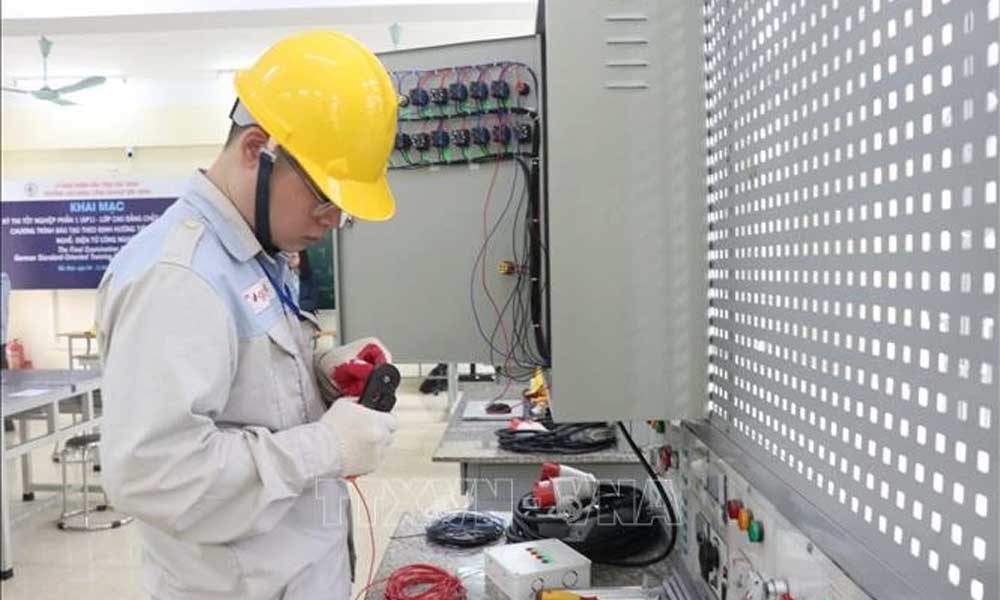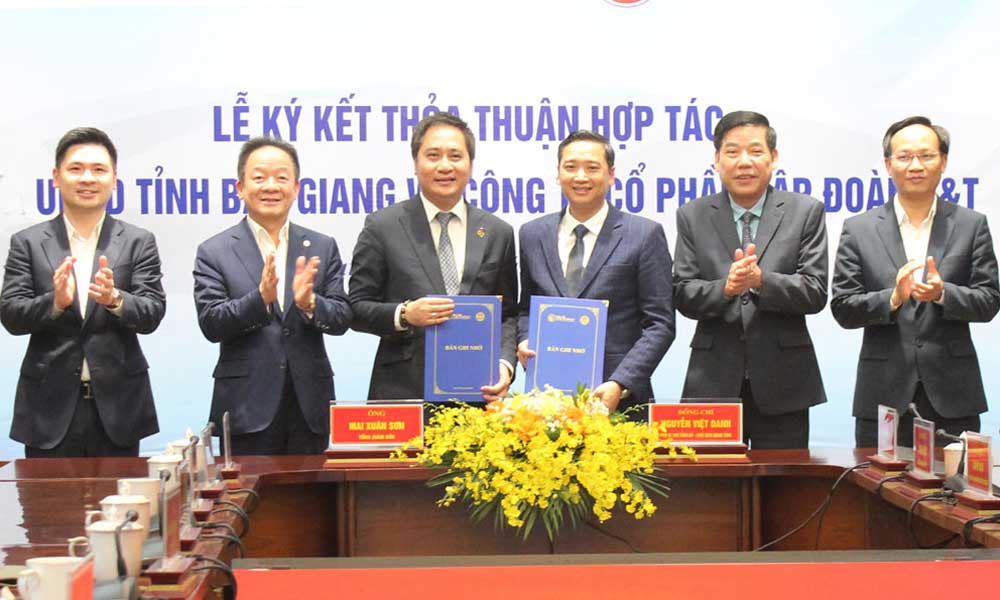Vietnam cultivates AI and semiconductor industries to join global supply chains
Thanks to its favourable geographical position, young workforce, modern infrastructure, and investment-encouraging policies, Vietnam is becoming one of the new tech hubs in Southeast Asia, drawing attraction from top-notch enterprises in the semiconductor and artificial intelligence (AI) industries.
In March, enterprises’ leaders, scientists, technology experts from around the world gathered at the National Innovation Centre (NIC) in Hoa Lac to participate in the series of events under the Artificial Intelligence and Semiconductor Conference (AISC) 2025, jointly organised by NIC and the US-based Aitomatic.
 |
|
Illustrative image. |
This is the first international event on the correlation between the two transformational technological industries — AI and semiconductors. Christopher Nguyen, CEO of Aitomatic, highlighted the win-win relationship between the two sectors, with AI playing a key role in the automation of semiconductor manufacturing, and, vice versa, semiconductors being indispensable in AI development.
Nowadays, AI has become an irreplaceable tool for several high-tech manufacturing industries, especially in semiconductor chips production factories.
Comparing chip fabrication to heart surgery or aircraft manufacturing, Christopher Nguyen pointed out that the precision required for chip production is thousands of times higher, as minor deviations in parameters such as pressure, fuel, air, or humidity can lead to defective products
The application of AI in plasma processing ensures near-perfect accuracy in controlling these parameters.
AI can also rapidly diagnose product defects by synthesising years of human expertise, leading to the production of smaller, smarter, and more efficient chips, ultimately improving semiconductor yield and quality.
Furthermore, the pace of AI and semiconductor development is accelerating rapidly.
The semiconductor and AI industries are revolutionising numerous economic and social sectors, particularly high-tech industries.
For instance, in automobile manufacturing, Daniel Weyl, Senior Vice President of Automotive, noted that car manufacturers are increasingly integrating AI to consolidate various functions into a few central controllers capable of handling multiple tasks, replacing traditional hardware-based electronic control units (ECUs).
This shift contributes to more flexible and economical cars due to reduction in complex design and overall productivity enhancement.
In the maritime industry, AI is being leveraged to automate the analysis and synthesis of regulatory updates, create compliance checklists, support crew training, and process vast amounts of data from ships to optimise routes and enable real-time monitoring.
These advancements play a crucial role in addressing pressing challenges such as labour shortages and data overload in the maritime sector.
During multiple discussions at AISC 2025, experts and scientists agreed that Vietnam is becoming a prime destination for global research and development (R&D) centres.
This is evidenced by NIC and major Vietnamese corporations such as FPT and CMC establishing strategic partnerships with leading technology firms like NVIDIA, Meta, and Google.
A significant milestone in Vietnam’s international AI collaboration is the launch of the ViGen project, aimed at creating high-quality, open-source Vietnamese language datasets to train and evaluate large language models (LLMs).
Vo Xuan Hoai, Deputy Director of NIC, stated that ViGen will provide extensive, high-quality Vietnamese datasets, enabling AI models to function naturally and comprehensively from their core, thus unlocking the potential of AI applications in Vietnam.
To seize the opportunity to integrate into the global semiconductor and AI supply chains, Christopher Nguyen recommended that Vietnam prioritise the development of a high-quality workforce through close collaboration between businesses, educational institutions, and the government.
Additionally, continued investment in technology infrastructure is essential, with a focus on high-tech parks, large-scale data centres, and the establishment of a comprehensive ecosystem within enterprises.
Another crucial aspect is the creation of a transparent and equitable business environment for enterprises and investors, along with refining the legal framework to support investment activities in the semiconductor and AI industries.
 Bắc giang
Bắc giang


.jpg)











Reader's comments (0)